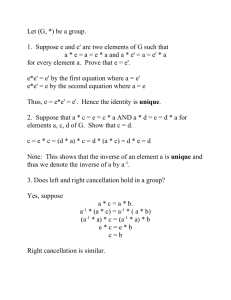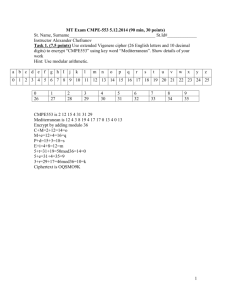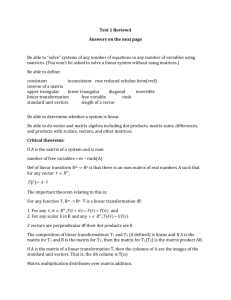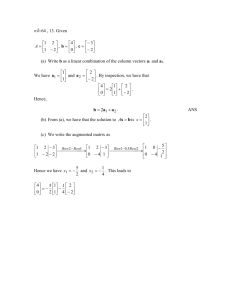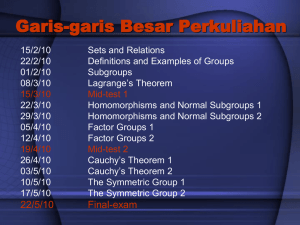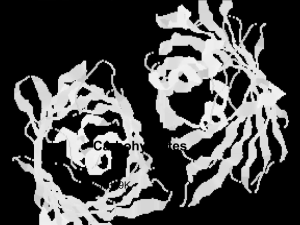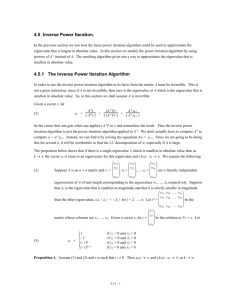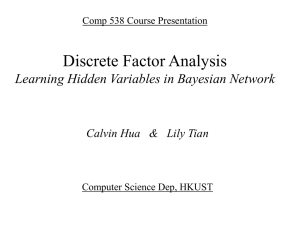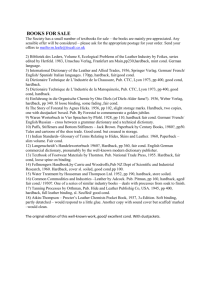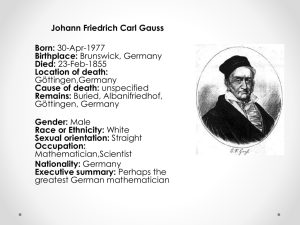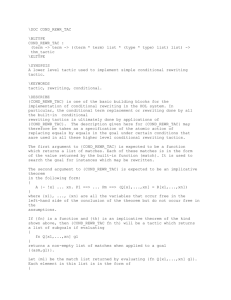Direct methods for Linear Systems
advertisement
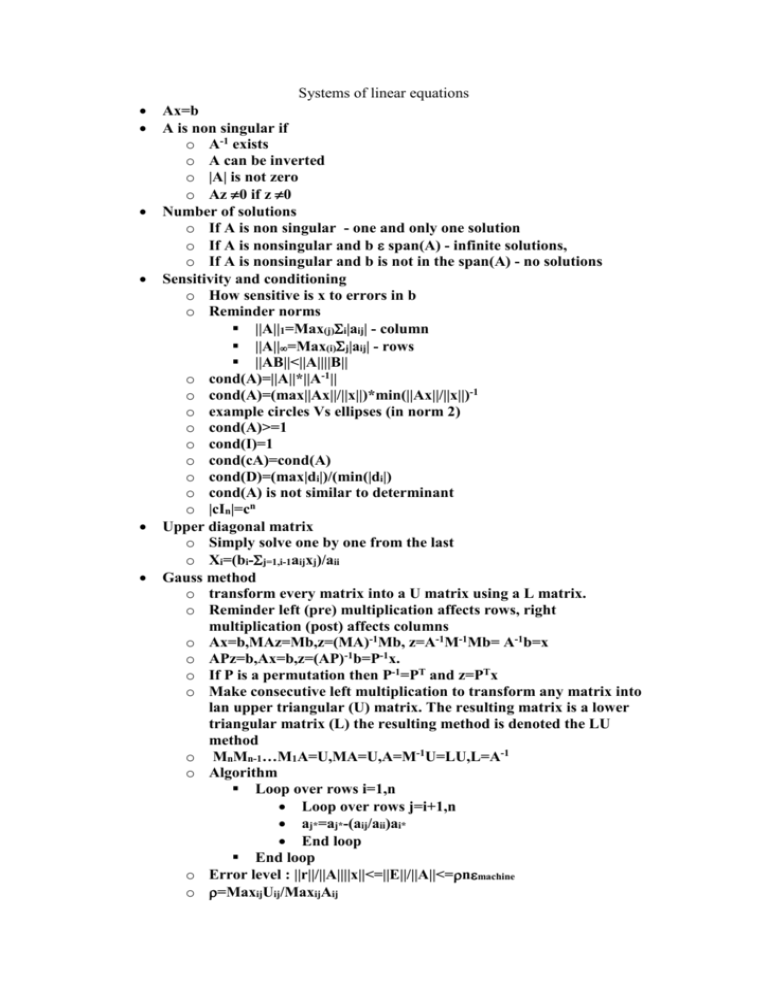
Systems of linear equations Ax=b A is non singular if o A-1 exists o A can be inverted o |A| is not zero o Az 0 if z 0 Number of solutions o If A is non singular - one and only one solution o If A is nonsingular and b span(A) - infinite solutions, o If A is nonsingular and b is not in the span(A) - no solutions Sensitivity and conditioning o How sensitive is x to errors in b o Reminder norms ||A||1=Max(j)i|aij| - column ||A||=Max(i)j|aij| - rows ||AB||<||A||||B|| o cond(A)=||A||*||A-1|| o cond(A)=(max||Ax||/||x||)*min(||Ax||/||x||)-1 o example circles Vs ellipses (in norm 2) o cond(A)>=1 o cond(I)=1 o cond(cA)=cond(A) o cond(D)=(max|di|)/(min(|di|) o cond(A) is not similar to determinant o |cIn|=cn Upper diagonal matrix o Simply solve one by one from the last o Xi=(bi-j=1,i-1aijxj)/aii Gauss method o transform every matrix into a U matrix using a L matrix. o Reminder left (pre) multiplication affects rows, right multiplication (post) affects columns o Ax=b,MAz=Mb,z=(MA)-1Mb, z=A-1M-1Mb= A-1b=x o APz=b,Ax=b,z=(AP)-1b=P-1x. o If P is a permutation then P-1=PT and z=PTx o Make consecutive left multiplication to transform any matrix into lan upper triangular (U) matrix. The resulting matrix is a lower triangular matrix (L) the resulting method is denoted the LU method o MnMn-1…M1A=U,MA=U,A=M-1U=LU,L=A-1 o Algorithm Loop over rows i=1,n Loop over rows j=i+1,n aj*=aj*-(aij/aii)ai* End loop End loop o Error level : ||r||/||A||||x||<=||E||/||A||<=nmachine o =MaxijUij/MaxijAij o Complexity n3/3 (inversion costs approximately 3 times as much) Gauss method with row pivoting (partial pivoting) o Replace at every stage the row with the row containing the maximal value at the diagonal column. o M=MnPnMn-1Pn-1…M1P1 o M (and thus L) are not lower diagonal any more (but it is still called LU method) Gauss method with row and column pivoting o Find the maximum over all rows and column in the remaining matrix o More complicated since it requires right multiplications, which then should be applied to the resulting vector o Ax=b o MAM'z=Mb o z=M'Tx Gauss Jordan method o Same as gauss method with partial pivoting. o Rescale diagonal to one. o Remove values above and below diagonal o A little bit more expensive than standard gauss method (n3/2), but a little bit more precise. o Equivalent to (half) inverting the matrix Error analysis o Ax*=b*, Ax=b,b=b*+b,x=x*+x o Ax=b, x=A-1b o ||Ax||=||b||, ||b|| <=||A||*||x||, ||x||>=||b||/||A|| -1 o ||x||=||A b||, ||x||<=||A-1||*||b|| o ||x||/||x||<=||A-1||*||b||*||A||/||b||=cond(A)*||b||/||b|| o A=A*+E, A*x*=b, Ax=b,(A*+E)x=b, A*x =b- Ex o A*x=A*x-A*x*=Ex, x=A*-1(Ex) o ||x||<=||A-1*||*||E||*||x|| o ||x||/||x||<=cond(A)*||E||/||A|| residuals o Ax*=b o r=b-Ax o relative residual ||r||/||A||||x|| o ||x||=||x-x*||=||A-1Ax-A-1b||A-1(Ax-b)||<=||A-1||*||r|| o ||x||/||x||<=|cond(A)*||r||/||A||||x|| o Suppose (A+E)x=b o r=b-Ax,||r||=|b-Ax||=||Ex||<=||E||*||x|| o ||r||/||A||||x||<=||E||/||A|| o Error level in gauss method: ||r||/||A||||x||<=||E||/||A||<=nmachine o =MaxijUij/MaxijAij o Complexity n3/3 (inversion costs approximately 3 times as much) Limitations on direct standard methods o Cost o Assume dense matrix, not effective at all for sparse matrix o Assume no knowledge of matrix structure Direct LU factorization o Doolittle method. 1 in the diagonal of L. o First solve first row of U and first column of L and so on. o Croute method 1 in the diagonal of U Applications of LU factorization o Equation solving: Ax=b,LUx=b,L(Ux)=b,y=Ux,Ly=b o Solve Ly=b then Ux=y o Matrix inversion A=LU,A-1=U-1L-1 o ULA-1=I, L A-1=B=U-1,UB=I, L A-1
